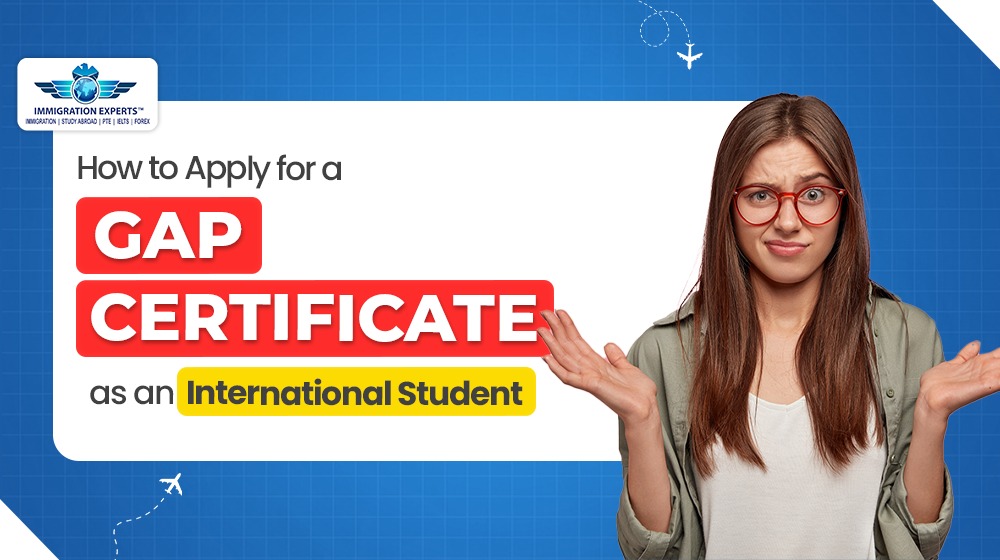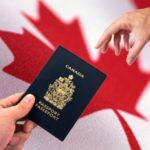Taking a break from studies is quite common. Whether it’s for personal reasons, health challenges, gaining work experience, or simply deciding your next academic move, a gap in your education can happen to anyone. However, if you plan to study abroad after a break, it’s essential to explain it clearly. This is where a Gap Certificate becomes crucial.
A Gap Certificate officially validates your time away from studies, helping universities and visa officers understand your journey. If you’re unsure how to obtain one or why it’s necessary, this guide will walk you through the entire process.
Ready to start your study abroad journey? Get personalized guidance from Apical Immigration Experts today!
What is a Gap Certificate and Who Needs It?
A Gap Certificate, also called a gap affidavit, is a formal declaration explaining the reason for a break in your academic timeline. It typically mentions the period of the gap and its purpose, such as personal issues, health concerns, work, or exam preparation.
For international students, a Gap Certificate ensures transparency during university admissions or visa applications. It shows that your break from studies was valid and properly documented.
Why a Gap Certificate is Important for International Students
Having a Gap Certificate can strengthen your application and make your academic or professional journey clearer. Here’s why it matters:
- Adds credibility – Provides a formal explanation for your break, helping universities or employers understand your reasons.
- Simplifies admissions and visa process – Many universities or immigration authorities request a Gap Certificate if the break exceeds six months.
- Demonstrates responsibility – Officially documenting your gap reflects honesty and a proactive approach.
- Justifies your time away – Shows that your gap period was purposeful, whether for work, personal matters, or exam preparation.
- Smooth application process – Well-prepared documents reduce delays or additional queries from institutions or visa officials.
When Do You Need a Gap Certificate and Who Can Issue It?
You typically need a Gap Certificate if there’s a break in your academic record. Even a justified gap should be documented with supporting evidence, especially when applying to universities abroad.
The certificate can be self-declared on a stamp paper and notarised by a public notary. In some cases, it may be issued by a lawyer or prepared with the help of a study abroad consultant.
Gap Certificate Format for Students
While there’s no official template, a Gap Certificate should follow a formal and clear structure. The main goal is to explain your break honestly and concisely.
Essential Elements:
- Title – Mention “Gap Certificate” or “Affidavit for Educational Gap.”
- Student Details – Include full name, date of birth, latest qualification, and permanent address.
- Gap Duration – Specify the time period of the academic break with approximate dates.
- Reason for Gap – Briefly explain the cause, like health, personal reasons, work, or exam preparation.
- Declaration Statement – Confirm that all information is accurate to the best of your knowledge.
- Signature & Date – Sign and date the affidavit.
- Notary Attestation – Get the certificate notarised on a non-judicial stamp paper.
Step-by-Step Guide to Writing a Gap Certificate
Creating a Gap Certificate is straightforward but must be done carefully for admissions or visa purposes.
Step 1: Draft Your Declaration
Write an honest explanation for your break, including essential details.
Step 2: Use Stamp Paper
Finalize the draft on non-judicial stamp paper (usually ₹100–₹200) to make it legally valid.
Step 3: Notarisation
Visit a licensed notary. They verify your ID and witness your declaration, stamping and sealing the certificate.
Step 4: Keep Copies
Make photocopies of the notarised certificate for universities, consulates, or consultants.

Do’s and Don’ts of Writing a Gap Certificate
| Do’s | Don’ts |
| Be honest and factual | Don’t copy templates word-for-word |
| Use clear, formal language | Avoid vague reasons like “personal issues” only |
| Match gap dates with other documents | Don’t submit without notary stamp and signature |
| Proofread carefully | Don’t delay preparing the certificate |
Documents Required for a Gap Certificate
- ID Proof – Aadhar, PAN, passport, or driving license.
- School/College Leaving Certificate – Confirms your last academic enrollment.
- Proof of Address – Utility bill, rental agreement, or similar document.
- Citizenship/Birth Certificate – Passport or birth certificate for overseas education.
- Last Academic Marksheet – Most recent marksheet or degree before the gap.
- Supporting Documents – Medical reports, job letters, or exam admit cards if applicable.
Submitting Your Gap Certificate
After notarisation, attach the Gap Certificate to your university application or visa documents. If working with a study abroad consultant, submit it along with other academic and personal documents. Some institutions may request a scanned copy during the initial verification.
Sample Gap Certificate
AFFIDAVIT FOR GAP CERTIFICATE
To Whom It May Concern,
I, [Your Full Name], son/daughter of [Parent’s Full Name], residing at [Full Address], do hereby declare:
- I completed my [Last Qualification] from [Institution Name] in [Year].
- I have not been enrolled in formal education from [Month, Year] to [Month, Year].
- The reason for this gap is [State reason: health, personal matters, work, exam prep].
- During this period, I have not engaged in unlawful activities.
- I am now seeking to resume my studies abroad.
- The information provided is true to the best of my knowledge.
Date: [DD/MM/YYYY]
Place: [City Name]
Signature: __________________
Name: [Your Full Name]
Notary Public
(Official stamp and signature)
Conclusion
A gap in studies doesn’t have to hinder your plans to study abroad. A properly prepared Gap Certificate can present your academic journey clearly and professionally. With guidance from experienced consultants, you can ensure your documents are accurate and complete, making your study abroad application process smoother.
FAQs: Gap Certificate as an International Student
Q1. Is a Gap Certificate required by all universities abroad?
Not all universities ask for it, but many require it if there’s a break. Check the documentation requirements of your chosen institution.
Q2. Can I create a Gap Certificate on my own?
No. It must be on a stamp paper and notarised by a legal authority.
Q3. What if I had multiple gap periods?
Mention all gaps in a single affidavit, or consult a legal expert on whether separate certificates are needed.
Q4. Can a Gap Certificate be used for both academic and visa purposes?
Yes, a notarised Gap Certificate can support both university admissions and visa applications.
Q5. Will my gap affect scholarship eligibility?
It depends on the scholarship criteria. Some require continuous academics, while others accept valid gap reasons.
Get expert help with your study abroad journey — contact Apical Immigration Experts today to prepare your Gap Certificate and apply confidently!
Email: info@immigrationxperts.com
Call us: +91-9999467686, +91-8447-696555






